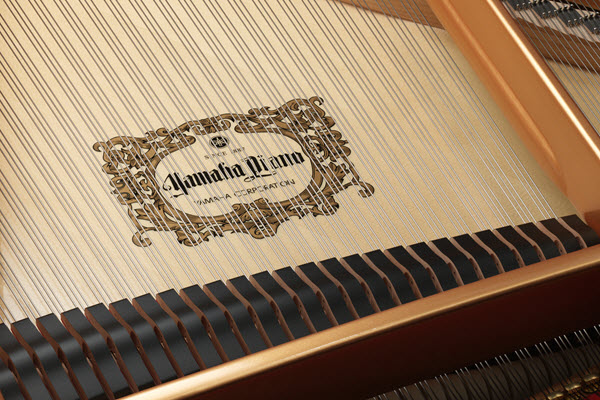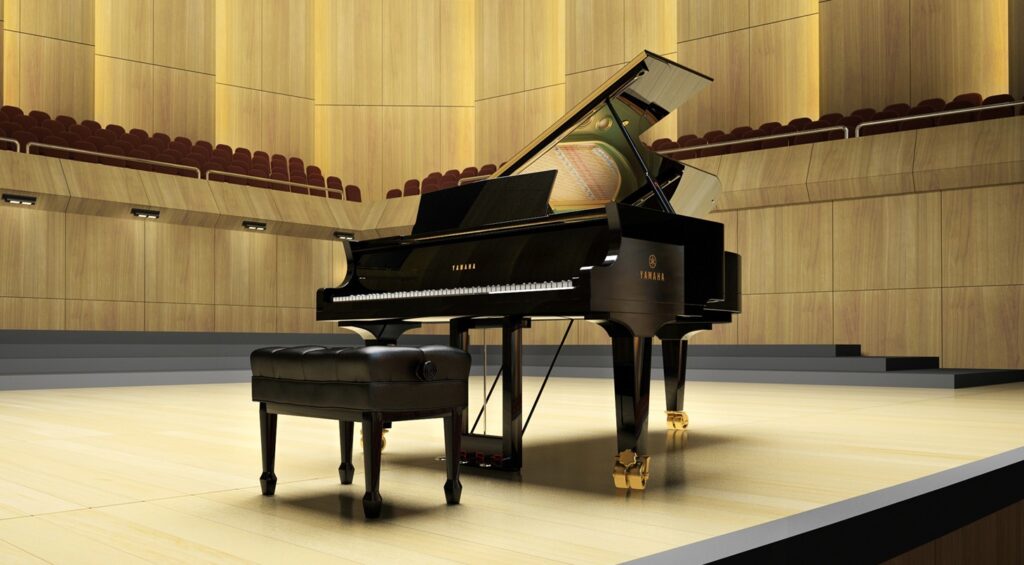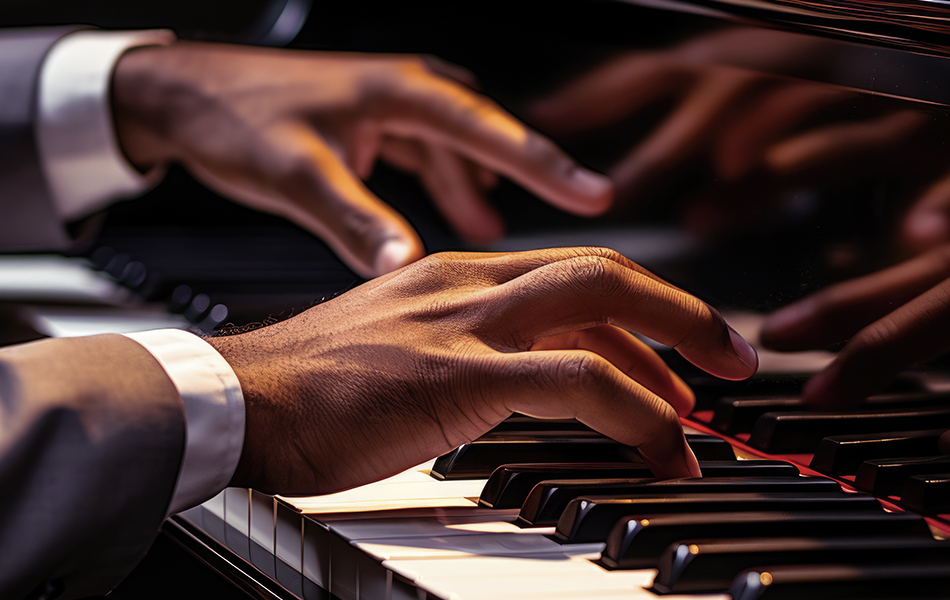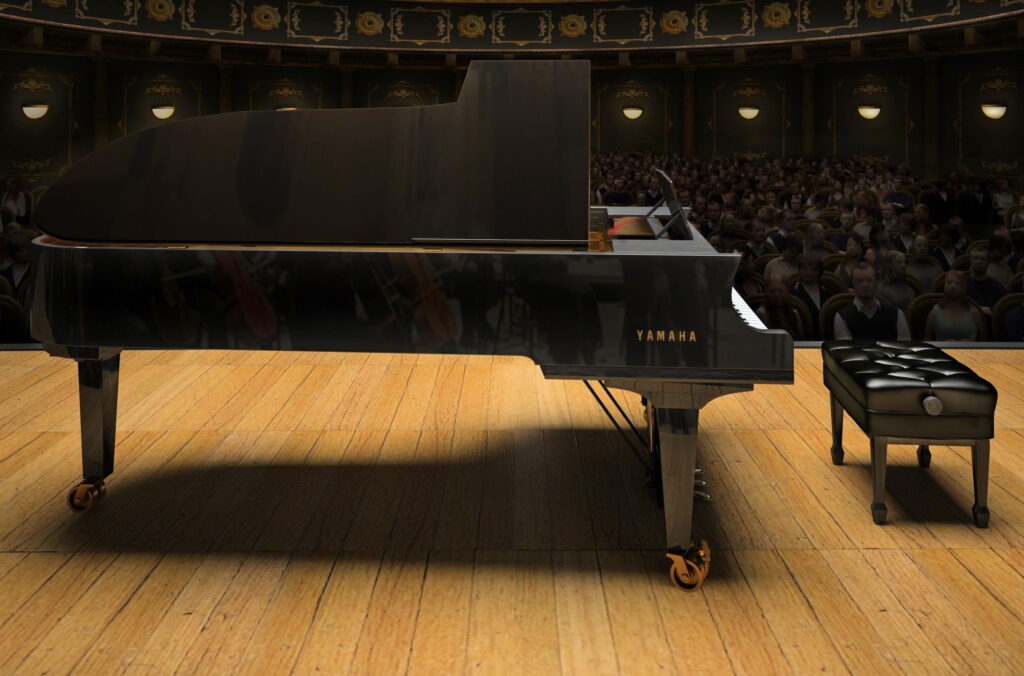Five Reasons Why Playing Piano is Good for You
From stress relief to improved concentration and dexterity, there are lots of benefits.
As anyone who’s ever tickled the ivories knows, playing piano is fun! But did you know that it’s also good for you?
Here are five reasons why.
1. It Provides Stress Relief
There are numerous studies that demonstrate that people who play the piano tend to experience less anxiety and loneliness. In fact, a 2013 article published in Frontiers In Psychology found that piano practice can actually help treat depression in elderly adults. But playing the piano does more than just remove negative emotions; it replaces them with positive ones by releasing serotonin and dopamine in the brain as you play — the same “feel-good” chemical neurotransmitters responsible for giving you the “chills” when listening to music that stirs you. Even just playing for a few minutes a day can lower your blood pressure. It’s so beneficial, in fact, that it’s a widely used form of therapy for Attention Deficit Disorder (ADD).

Listening to repetitive sounds engages the neocortex area in your brain, thus reducing cortisol levels, which serve to calm you and reduce impulsive behaviors. In one study published in the International Journal of Music Education, college students were sorted into groups where they either played piano, created a sculpture, wrote calligraphy or simply sat in silence. Remarkably, the piano-playing group experienced far larger drops in cortisol levels than the sculpture and calligraphy groups.
Playing the piano requires full focus, leaving no room for other thoughts, making it an excellent non-pharmaceutical alternative if you are experiencing anxiety issues or having trouble sleeping due to overthinking. It’s also an activity that provides ample opportunities to bolster self-esteem: mastering a tricky passage of music makes you feel good about yourself and helps generate a positive outlook on life while providing a healthy outlet for creative expression.
2. It Improves Concentration and Dexterity
As we just said, playing the piano requires concentration; you need to coordinate your fingers, eyes and mind — even your body posture — and at the same time focus on rhythm, pitch, note duration and tempo. Every detail matters!
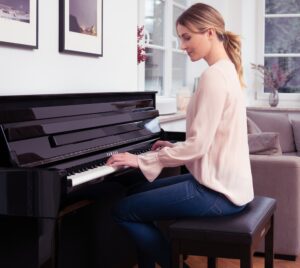
Interestingly, playing a musical instrument is one of few activities that engages all areas of your brain simultaneously, so you are actually multitasking when you play the piano. Some call this ability “split concentration,” while others term it “divided attention.” Either way, it’s an integral part of playing the piano, which requires that you use both hands, listen to the notes you’re playing and work the pedals … all at the same time. Multitasking skills like these extend to real-life situations. They enable you to pay better attention at school and work without requiring you to drop everything else you’re doing. (To learn more, check out this TedEd presentation.)
At the same time, piano playing sharpens your fine motor skills and improves dexterity. In some ways, playing the piano is like taking your fingers to the gym. As you practice, your fingers will strengthen and finger speed will increase. Good motor skills like these can not only make you more agile, but also result in increased energy overall.
A study published in the Journal of Anatomy even suggests that the cortical mapping in the brains of pianists actually changes over time to increase finger speeds. That’s why learning to play the piano can improve motor movement and overall coordination even in children and adults with reduced motor skills.
Reading music with your eyes and responding with your hands also serves to build excellent hand-eye coordination; this applies to learning any musical instrument. However, when playing piano specifically, you develop independent coordination skills. At times, your left and your right hand need to execute totally different movements. Your brain has to tell each hand separately what to do and how to move. And as you improve, you go from playing one note at a time to playing several in each hand. Developing independent coordination skills can positively impact other areas of your life, such as playing sports or video games, doing computer work, doing home or car repairs, even cooking.
3. It Helps You Develop a Musical Ear
If you play piano (or are interested in learning how to play), you’re probably someone who already appreciates music. But learning an instrument like piano can allow you to appreciate music even more by enabling you to hear details in music you may have never noticed before and better appreciate the skillset of your favorite artists.
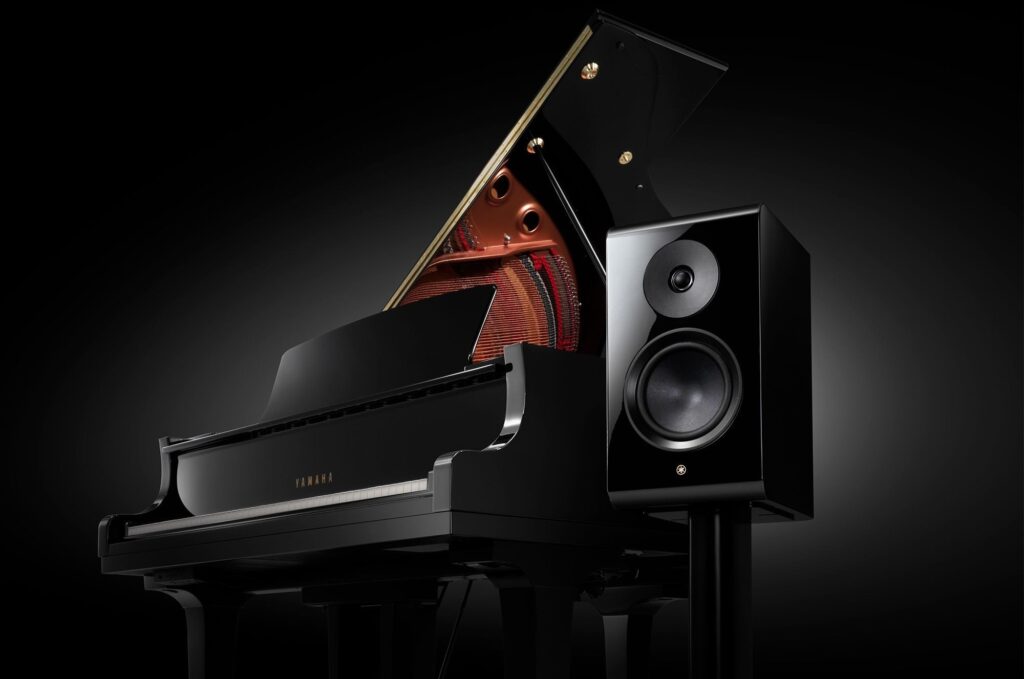
Having a keen understanding of sounds is called aural awareness; people with this skill are said to have a “musical ear” (the opposite of being “tone deaf”). Interestingly, although having a musical ear helps you play the piano, the opposite is also true: Playing piano helps you develop a musical ear by training you to recognize tones, intervals and chords as well as helping you to develop a sense of pitch. After all, you need to listen carefully in order to play any piece of music, and only if you are able to remember how it should sound will you be able to correct yourself. In fact, it helps to hum the song that you are about to learn before you actually start to play it on your piano.
Aural awareness is important in aspects of life outside of music too. Good aural awareness makes it easier to identify and understand sound patterns of foreign languages, can help fight dyslexia while it is still developing, and can even help you if you have trouble hearing when there is a lot of background noise (a physiological phenomenon known as the Cocktail Party Effect).
4. It Fosters a Sense of Community
Music is a universal language that crosses all barriers and is capable of eliciting strong emotions in both the listener and player. The piano was designed to reflect human emotion and feeling, and for hundreds of years, it has been bringing the power of music to millions of people.
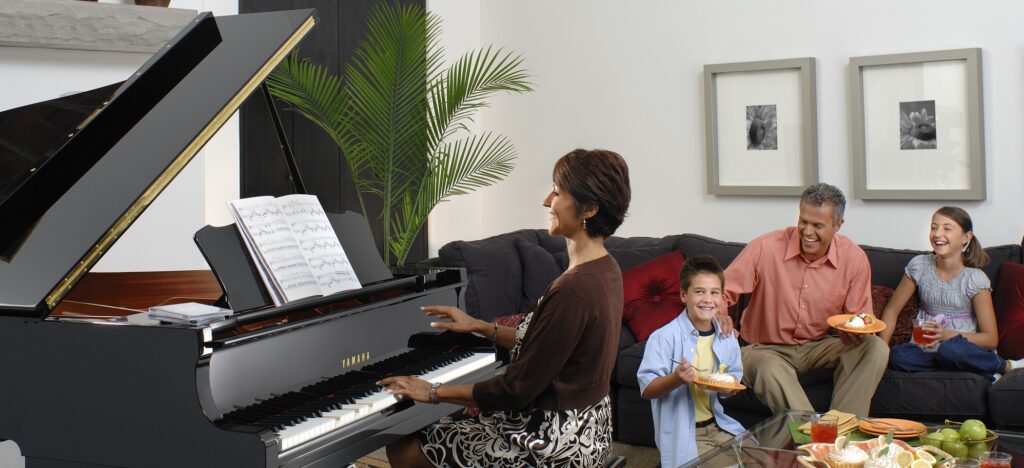
Playing piano is a wonderful way of bringing together the larger community, as well as smaller groups of family and friends. And even though it’s often seen as a solo instrument, it can open up your social life! Consider joining an ensemble, playing voluntarily for a senior center or church, or starting an online or in-person pianist group in your area. Music is always a great conversation-starter, especially when you’re with others that play the same instrument.
5. It’s Easy to Learn
Compared to most other musical instruments, the piano is easy to play, and you can start at any age. No need to build up calluses on the fingers as with learning guitar; no having to develop embouchure and breathing techniques as with a wind instrument — endeavors that are sometimes painful and can dissuade otherwise enthusiastic students from continuing to learn. To play the piano, all you have to do is sit and press down a key. (Of course, that’s an oversimplification, but it’s certainly easier to start on piano than on most other instruments.)
There are lots of options for piano students at every level, from beginner to professional. Most schools offer piano classes and there are plenty of private teachers everywhere; you can also get a lot from blog postings like our Well-Rounded Keyboardist series or watching piano tutorial videos online.
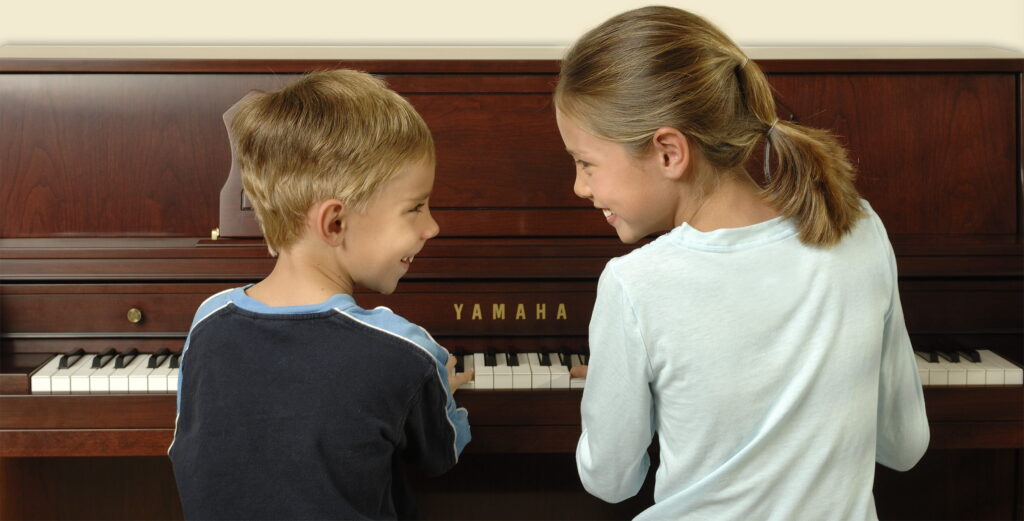
So what are you waiting for? Time to start playing!











